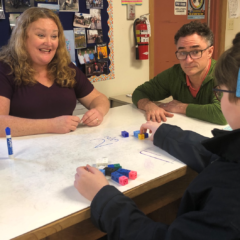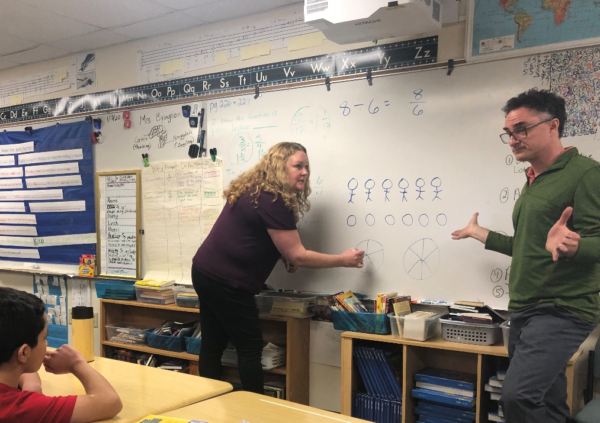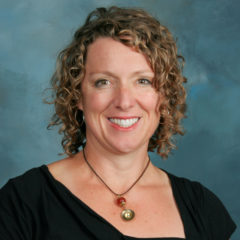CSTP Updates:
• February 6: Zooming In & Out on Inclusionary Practices Dr. Katie Novak and Shelley Moore
• March 21: Culturally Responsive Education in the Classroom: An Equity Framework for Pedagogy written by Dr. Adeyemi Stembridge
This week was a busy one for lawmakers on the hill. The second week of the session always brings more bills and hours full of committee hearings. Last week, the Education Committee held a series of work sessions, designed to get their newest members up to speed. These sessions consisted of in-depth overviews of our K-12 system, and the effect the COVID-19 pandemic had on student outcomes and district services. This week we saw a pivot in focus. The House and the Senate held multiple public hearings, gathering testimony from local constituents and the Senate Early Learning & K-12 Education Committee held their first “executive session,” passing several bills out of committee.
On Tuesday, the House Education Committee held a public hearing on HB 1109, which would provide some reimbursements for school districts for special education evaluations. The issue of special education funding is long standing and a priority for both Superintendent Reykdal and Governor Inslee in the 2023 session. This week’s article from the Seattle Times’ Education Lab, breaks down our state’s special education funding numbers and highlights where gains could be made to close the funding gap between what districts spend and what the state provides for special education.
As we look ahead at the session, referring to the 2023 cut-off calendar is very helpful when trying to keep pace with our education committees. The first legislative cutoff with the house of origin policy committees is on February 17th, shortly followed by the house of origin fiscal committee cutoff on February 24th. These cutoffs mean that all bills need to be heard, debated, and voted on by the committees and sent to their respective Rules Committee in order to be considered for further action.
Education Hearings for Next Week on TVW.org
House Education Committee
- Monday, January 23 at 1:30pm
- Tuesday, January 24 at 4pm
- Thursday, January 26 at 8am
Senate Early Learning & K12 Education
- Monday, January 23 at 1:30pm
- Wednesday, January 25 at 1:30pm
- Thursday, January 26 at 1:30pm
New Bills
HB 1305: which would improve access to and provision of a free appropriate public education for students with disabilities.
HB 1308: which concerns high school graduation pathway options.
HB 1316: which would expand access to dual credit programs.
HB 1332: which would support public school instruction in tribal sovereignty and federally recognized Indian tribes.
HB 1354: which concerns parental involvement through volunteering in schools after a criminal conviction.
HB 1376: which would align policies to reflect the updated standards of practice for school district staff.
HB 1377: which would require the posting of approved courses and providers of continuing education.
HB 1411: which would support student success through cross-sector professional development.
HB 1436: which would increase funding for special education.
SB 5315: which concerns nonpublic agencies operating special education programs for students with disabilities within public schools.
SB 5355: which would mandate instruction on sex trafficking prevention and identification for students in grades seven through 12.
SB 5408: which would establish the ninth grade success grant program.
SB 5441: which would promote school district adoption of curricula that is diverse, equitable, and inclusive.
SB 5442: which would provide enrichment funding for charter public schools.
SB 5462: which promotes inclusive learning standards and instructional materials in public schools.
Bills We’re Following:
HB 1003: which would expand access to dual credit programs.
HB 1013: which would require OSPI and Washington ESDs to jointly establish a regional apprenticeship pilot program with one site each in Eastern and Western Washington (hearing time: 49:55). Testifying in support: a student representative from the SBE, representatives from Curlew SD, Marysville SD, NCESD, WSSCA, and the WTIA. Testifying in opposition: representatives from the Conservative Ladies of Washington. Testifying as “other”: representatives from the MCAWW.
HB 1015: which revises minimum employment requirements for paraeducators (hearing time: 3:32 and 17:44). Testifying in support: representatives from the Rural Ed Center, Highline SD, Lake Washington SD, PESB, WEA, PSE and the Lynden SD.
HB 1044: which would provide capital financial assistance to small school districts with demonstrated funding challenges.
HB 1057: which would provide a benefit increase to certain retirees of the public employees’ retirement system plan 1 and the teachers’ retirement system plan 1.
HB 1071: which would authorize funding for a school resource officer in every school.
HB 1093: which aims to provide parents and their children with more choices for a quality elementary and secondary education through the family empowerment scholarship program.
HB 1109: which would provide additional special education funding to school districts in order to increase initial evaluations during summers (hearing time: 9:33 and 35:39). Testifying in support: representatives from OSPI, WEA, WSSDA and WSPTA. Testifying as “other”: representatives from Lake Washington SD.
HB 1113: which would require the Professional Educator Standards Board (PESB) to adopt rules for reviewing and vacating reprimands issued to certificated professional educators (hearing time: 47:57). Testifying in support: a concerned citizen and the WEA. Testifying in opposition: representatives from OSPI.
HB 1146: which would require schools to notify high school students and their families about available dual credit programs and any available financial assistance.
HB 1207: which aims to prevent and respond to harassment, intimidation, bullying, and discrimination in schools through updated policies and procedures (hearing time: 0:33 and 35:27). Testifying in support: representatives from OSPI and Bellevue SD.
HB 1273: which would empower school districts to determine requirements for high school and beyond plans regarding student fulfillment and graduation.
HB 1277: which would establish rules to improve the consistency and quality of the implementation of the fundamental courses of study for paraeducators (hearing time: 14:23). Testifying in support: representatives from the WEA, PESB and Yelm Community Schools.
SB 5008: which relates to providing parents and legal guardians access to instructional materials.
SB 5009: which would require parental or legal guardian approval before a child participates in comprehensive sexual health education.
SB 5019: which removes “classified staff providing student and staff safety” from the definition of physical, social, and emotional support staff and the specific funding considerations for that group (hearing time: 26:34). Testifying in support: representatives from the WEA, NASW and OSPI. Testifying as “other”: representatives from the WSSDA, Lake Washington SD and PSE. The bill was passed out of committee and sent to the Senate Rules Committee.
SB 5020: which would lower the minimum age for compulsory school attendance from eight to six years old, and amend truancy provisions to align with this change, as well as require parents who homeschool to file an annual declaration of intent beginning at age 6 (hearing time: 46:17). Testifying in opposition: representatives from the Conservative Ladies of WA and several concerned citizens. The bill was passed out of committee and sent to the Senate Ways & Means Committee.
SB 5024: which would establish a parents’ bill of rights related to their child’s public education.
SB 5038: which would modify deadlines for notice of nonrenewal of certificated educator contracts from May 15th to June 1st (hearing time: 1:03:44). Testifying as “other”: representatives from the WEA.
SB 5048: which would eliminate college in the high school fees.
SB 5054: which would modify instructional hours to include time students spend in educational activities under the supervision of noncertificated staff while teachers participate in professional learning communities (PLCs) as well as encourage school districts to adopt a school calendar that includes at least four hours per week for teachers to engage in PLCs during the school day (hearing time: 3:08). Testifying in support: representatives from the WEA. Testifying in opposition: representatives from the Conservative Ladies of Washington.
SB 5064: which concerns excess cost allocations for special education programs.
SB 5072: which would establish new requirements for identifying students who may be eligible for highly capable services, including conducting universal screenings once in or before second grade, and again before sixth grade (hearing time: 4:15). Testifying in support: representatives from the UW Faculty, OSPI, SBE, Rochester SD, Northshore SD, WA Coalition, WSSDA, WSPTA, Lake Washington SD, Michelson Elementary and the CSF.
SB 5085: which would remove statutory limitations on the scope of collective bargaining in regards to supervisors, or principals and assistant principals, and would require specific evaluation criteria when transferring a principal/assistant principal to a subordinate certificated position. This bill would prohibit school district employment applications from including a question asking whether the applicant has ever been on a plan of improvement, or under an investigation (hearing time: 3:09). Testifying in support: representatives from AWSP, Kentlake HS, Rogers HS and Seattle PS. The bill was passed out of committee and sent to the Senate Rules Committee.
SB 5102: which concerns school library information and technology programs.
SB 5127: which would clarify school districts’ ability to redact personal information related to a student.
SB 5147: which would modify the student transportation allocation formula and expand the definition of “to and from school” to include the transportation of students participating in career connected and work based learning opportunities (hearing time: 1:07:59). Testifying in support: representatives from OSPI, ESD 105, WEA, WSSDA, Pullman SD, College Success Foundation, Teamsters 174 and PSE. Testifying in opposition: representatives from Conservative Ladies of Washington. Testifying as “other”: representatives from Bellevue PS, Olympia PS, Seattle PS and Highline PS.
SB 5175: which would allow employment contracts between a school board and principal to be up to three years in length, as opposed to limited to a term of one year (hearing time: 43:08). Testifying in support: representatives from AWSP, Kentlake HS, Rogers HS, Seattle PS, Othello SD and Lakeside HS. The bill was passed out of committee and sent to the Senate Rules Committee.
SB 5180: which aims to support the retention of teachers by removing barriers to licensure and creating a streamlined pathway to licensure mobility (hearing time: 27:43). Testifying in support: representatives from the Department of Defense, the VLC, the OSPI, the CSG, NASDTEC, SSMCP and several concerned citizens. Testifying as “other”: representatives from the WACTE and the PESB.
SB 5237 which would direct OSPI to establish procedures to investigate and address complaints alleging noncompliance with state laws regarding civil rights, certain curriculum requirements and student discipline. (hearing time: 59:17). Testifying in support: representatives from the WEA and OSPI. Testifying in opposition: several concerned citizens, representatives from the Washington Policy Center the Conservative Ladies of Washington. Testifying as “other”: representatives from the WSSDA, Reardon-Edwall SD and a concerned citizen.
SB 5257: which would ensure that public schools provide daily recess for all elementary students with a minimum of 45 minutes when the school day is longer than five hours and a minimum of 30 minutes when the school day is shorter, as well as prohibit schools from withholding recess as a punitive action (hearing time: 29:31). Testifying in support: representatives from the King County Play Equity Coalition, several WA State students, several concerned citizens, WSSDA, Special Olympics WA, SBE and the UW Faculty. Testifying as “other”: representatives from OSPI.
SB 5311: which would increase the special education excess cost multipliers for pre-K and K12 students over a four-year period and increase the special education enrollment funding cap from 13.5 percent to 14.5 percent.
Odds and Ends:
This week from Crosscut, leading the way in classroom inclusivity, one Woodinville school works to better integrate special education students with their peers (featuring several members of the Inclusionary Practices Professional Development Cadre).
“What is pushed out to the mainstream is only half of who he was.” In honor of Martin Luther King Day, from TIME Magazine, The New Ways Teachers are Talking About Martin Luther King Jr.
Meet CSTP’s Legislative Update Coordinator Samantha Miller

Samantha Miller returns as CSTP’s Legislative Updates Coordinator for the 2023 legislative session. She writes weekly emails during the legislative session focusing on bills that impact Washington educators. Samantha has degrees in both Political Science and History, as well as a Master in Teaching. Samantha has worked in Elementary Education for 6 years, most recently as a 3rd Grade general education teacher. The majority of her time is spent chasing around her two children who keep her very busy. Samantha enjoys running, working in her yard, listening to political podcasts, and spending time with her family.








